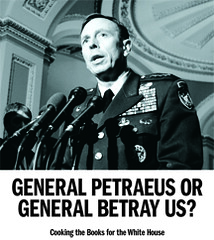Ever since online merchandising became possible, candidates have been looking for ways to employ it for fundraising purposes. According to the Tribune’s Washington Bureau (hat tip: The Hotline), at least one candidate is looking to push the possibilities.
Hillary Clinton is hoping to erase $20 million from her campaign debt by selling a T-shirt that was originally meant to raise campaign funds. The T-shirt is “limited edition” and costs $50. Clinton promoted the T-shirt in an e-mail blast to supporters and the New York Daily News has a shot of her pushing the shirt, mentioning how it sounds a little bit like a Budweiser rip off and what the contest-winning designer has to say about it.
A Clinton spokesperson would not comment, nor has there been much mention that a good part of that debt is money she loaned herself and shirt purchases could detract from fundraising efforts by Sen. Barack Obama or other candidates, regardless of their party affiliation. Of course, Obama doesn’t seem to mind. He is also urging supporters to help his former rival out.
While there is nothing wrong with helping to retire a candidate’s debt, some people might wonder what’s wrong with a little fiscal restraint before asking voters to foot another bill caused by too much spending. Oh right, never mind. Visa, Mastercard, and American Express are accepted by the T-shirt site.
Now if only some politicians would propose a T-shirt to help erase the United States’ national debt then they might be onto something. Now that one really would be for you.

Hillary Clinton is hoping to erase $20 million from her campaign debt by selling a T-shirt that was originally meant to raise campaign funds. The T-shirt is “limited edition” and costs $50. Clinton promoted the T-shirt in an e-mail blast to supporters and the New York Daily News has a shot of her pushing the shirt, mentioning how it sounds a little bit like a Budweiser rip off and what the contest-winning designer has to say about it.
A Clinton spokesperson would not comment, nor has there been much mention that a good part of that debt is money she loaned herself and shirt purchases could detract from fundraising efforts by Sen. Barack Obama or other candidates, regardless of their party affiliation. Of course, Obama doesn’t seem to mind. He is also urging supporters to help his former rival out.
While there is nothing wrong with helping to retire a candidate’s debt, some people might wonder what’s wrong with a little fiscal restraint before asking voters to foot another bill caused by too much spending. Oh right, never mind. Visa, Mastercard, and American Express are accepted by the T-shirt site.
Now if only some politicians would propose a T-shirt to help erase the United States’ national debt then they might be onto something. Now that one really would be for you.
















